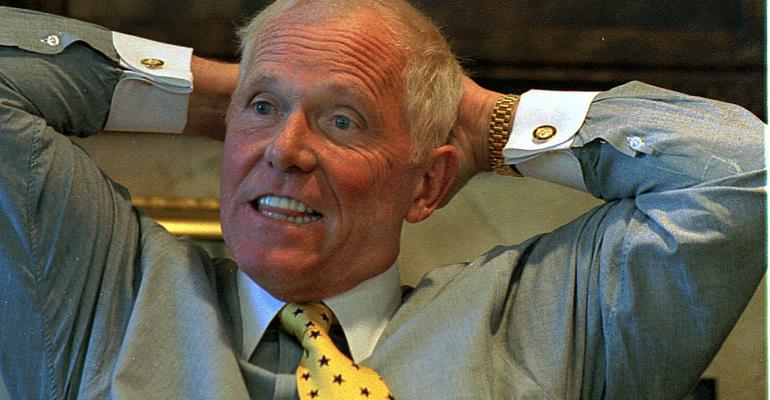As a leader, who are you really?
No, really: who are you? Not just how you prefer to think of yourself, but, based on your actual behavior, who do you show yourself to be each day both personally (with family and friends) and professionally (with colleagues and constituents)?
Most importantly, how does this answer change if we actually go ask these people?
Herein lies one of the greatest leadership—and life—opportunities for us all: to achieve alignment between who we want ourselves to be and who others experience us to be.
Why does this matter?
The research is both voluminous and clear (including as evidenced here and here) that executives who lead from the inside out—meaning that they realize that the example that they set with their colleagues and associates greatly influences and will be reflected in how the latter engage with the organization’s external clients—create the kind of organizational cultures that are both high-performing and sustainable over time. Simply put, an ever-increasing trove of Client Experience (CX) research demonstrates conclusively that how well an organization’s people are cared for is directly reflected in how well its clients perceive themselves to be served. Increasingly, organizations of all kinds compete more on CX than on product or service or quality or convenience or price, etc. Authenticity and alignment are critical determinants of impact and contribution, or, from an organizational perspective, performance. Simply put, it’s hard for us to lead our firms and practices to excel if we’re not honest about who we are and how we relate to others.
Reflect on the colleagues with whom you’ve worked over the years, especially the leaders, and assess how authentic you think they were and/or are. Now, reflect on how much you allowed them to influence you: my surmise is that there’s a positive correlation between their authenticity and their impact.
What differentiates great leaders, in my experience, is that they’re both conscious of and honored by their responsibility to lead by example and joyfully proactive in their commitment to the development and ultimate success of their people, just as much if not more than their own. Truly, they’re servant leaders.
And let’s be clear that what we’re most focused on here is our behavior, not our intent. In large part this is because we’re aware of a natural bias and must be proactive in overcoming it: We tend to judge ourselves based on our intentions and others based on their actual behavior, which means that we’re more forgiving and constructive in our self-assessments than in how we evaluate others. Except that, for those of us who’ve chosen to be leaders and therefore accountable to those whom we serve, other than the bottom line over time, how others experience us is the most important measure of our effectiveness.
There are, no doubt, horrible people and bosses who can drive high performance for a time, but typically this comes at a great cost, especially to a firm’s culture and its people’s experience of it. To understand this phenomenon, if you’re not familiar with the exploits of “Chainsaw” Al Dunlap, a pioneering (insert your own expletive) boss, I mean, ‘turnaround specialist CEO’ of the 1980s, google him: oh, he achieved some pretty impressive results for a while, but, not surprisingly, not for that long and, of course, it didn’t end well.
So, to create a legacy of sustained and sustainable positive impact and contribution, we’re well-advised to be authentic in our comportment and consistently constructive and contributory in our behavior. Which means, among other things, that we should be willing to be judged by how others perceive and experience us more so than our self-assessment. To make it plain, you’re really only as good as your people think and say you are.…
One way that we can garner critical feedback from those we serve and thereby get an accurate assessment of who we really are as leaders is to seek, reflect on, respond proactively to and choose to evolve based on their 360 degree feedback. Executives are typically supportive of their organization surveying its external clients to determine the latter’s satisfaction and engagement, but too few of them realize that the most important constituency is their internal one, their colleagues and associates. Hence, as critical as Client Satisfaction/Engagement and Net Promoter Score surveys are, executive 360 degrees ones are even more important … and, of course, uncomfortable for leaders who don’t fully appreciate that they have (at least) two client constituencies.
Another is encouraging accelerated innovation unshackled by ‘the way we’ve always done things.’ In order to feel empowered and supported enough to achieve this kind of organizational transformation, employees have to trust their leaders and accompany them along the new trails being blazed. Of course, their willingness to make these leaps is directly related to how much they allow themselves to be influenced by their leaders, which is itself a reflection of how authentic they perceive the latter to be.
So, if you really want to know who you are as a leader, go ask your people and then respond to their feedback in a fully engaged and proactive way. The more fully you embrace the honor and opportunity to serve your clients, both internal and external, in an informed way, the greater their success and yours, both now and sustainably into the future.
Walter K. Booker is the chief operating officer of MarketCounsel, a business and regulatory compliance consultancy for investment advisors.





